Planetary Science
-
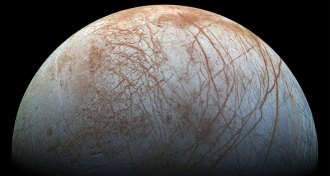 Planetary Science
Planetary ScienceSea salt may stripe Europa’s surface
Salt deposits on Jupiter’s moon Europa might be responsible for brown stripes on the icy satellite’s surface.
-
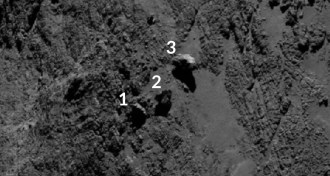 Planetary Science
Planetary ScienceBoulders balance on tiny tips as comet 67P zooms through space
Three boulders on comet 67P resemble balancing rocks that are seen on Earth.
-
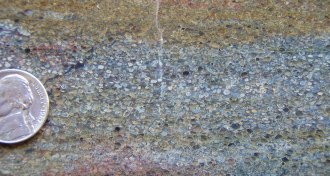 Earth
EarthAsteroids boiled young Earth’s oceans, remnant rocks suggest
Giant asteroid impacts may have boiled Earth’s oceans around 3.3 billion years ago, snuffing out near-surface life.
-
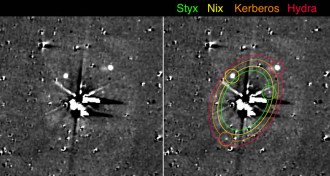 Planetary Science
Planetary ScienceNew Horizons probe takes family photo of Pluto’s moons
The New Horizons spacecraft finally spied Pluto's two tiniest satellites, Kerberos and Styx, in a series of images taken from April 25, 2015 to May 1, 2015.
-
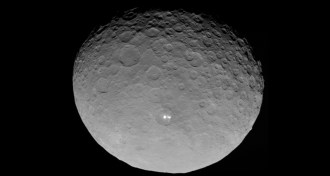 Planetary Science
Planetary ScienceBright spots on Ceres may be made of smaller patches of ice
The Dawn spacecraft took a closer look at bright patches and craters on the dwarf planet Ceres.
-
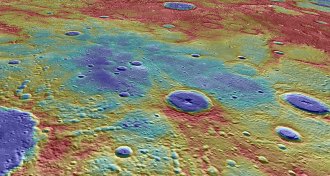 Planetary Science
Planetary ScienceOrigin date established for Mercury’s magnetic field
A 3.8-billion-year-old magnetic field on Mercury provides clues as to how the once volcanically active planet evolved.
-
 Planetary Science
Planetary ScienceHow did Earth get its water?
Earth is a wet planet that formed in a dry part of the solar system. How our planet’s water arrived may be a story of big, bullying planets and ice-filled asteroids.
-
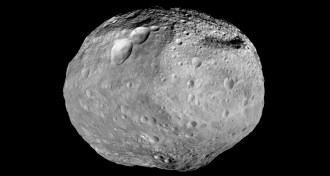 Planetary Science
Planetary ScienceExplore an asteroid with ‘Vesta Trek’
Vesta Trek lets users explore the asteroid Vesta with data from the Dawn spacecraft.
-
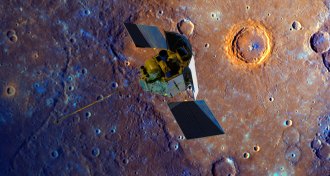 Planetary Science
Planetary ScienceMESSENGER mission ends with crash landing on Mercury
The MESSENGER mission to Mercury came to a spectacular end as the probe crashed into the planet’s surface.
-
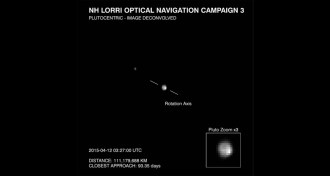 Planetary Science
Planetary SciencePluto’s landscapes come into view as New Horizons closes in
The New Horizons spacecraft sees surface markings and a possible polar cap on Pluto as it closes in for a July encounter.
-
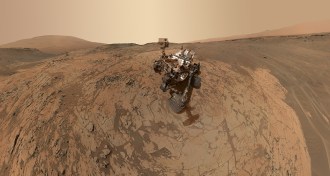 Planetary Science
Planetary ScienceThe Martian Diaries
Curiosity has explored Mars for over two and a half years. What if NASA's rover kept a scrapbook?
-
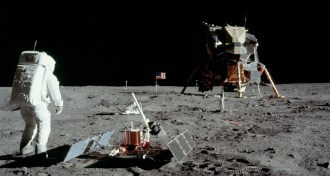 Planetary Science
Planetary ScienceBefore moon landings, scientists thought dust or crust might disrupt touchdown
Moon dust didn’t swallow spacecraft as was suggested in the 1960s. Successful exploration since that has changed our view of the moon.